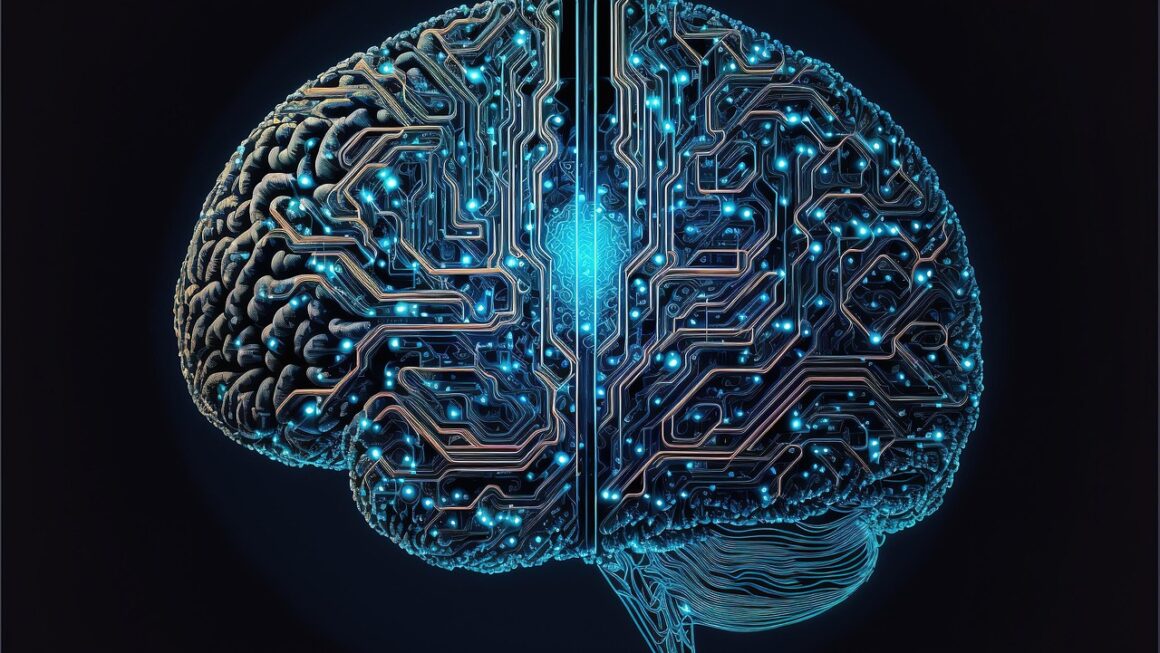AI-powered tools are rapidly transforming how we live and work, offering unprecedented opportunities for automation, optimization, and innovation. From enhancing productivity to unlocking new insights, the potential benefits are immense. This blog post delves into the world of AI tools, exploring their applications, benefits, and how you can leverage them to enhance your own endeavors.
Understanding AI-Powered Tools
What are AI-Powered Tools?
AI-powered tools are software applications that utilize artificial intelligence (AI) technologies, such as machine learning, natural language processing (NLP), and computer vision, to perform tasks that typically require human intelligence. They are designed to learn from data, adapt to new situations, and improve their performance over time.
Key AI Technologies Used
- Machine Learning (ML): Algorithms that enable computers to learn from data without being explicitly programmed.
Example: Predictive analytics tools that forecast sales trends based on historical data.
- Natural Language Processing (NLP): Enables computers to understand, interpret, and generate human language.
Example: Chatbots that provide customer support and answer queries.
- Computer Vision: Enables computers to “see” and interpret images, videos, and other visual data.
Example: Facial recognition software used for security purposes.
- Robotics: Integrates AI with physical robots to automate tasks in manufacturing, logistics, and other industries.
Example: Autonomous robots that perform warehouse operations.
Benefits of Using AI Tools
- Increased Efficiency: Automating repetitive tasks frees up human workers to focus on more strategic activities.
- Improved Accuracy: AI algorithms can perform tasks with greater precision and fewer errors than humans.
- Enhanced Decision-Making: AI can analyze vast amounts of data to provide insights that inform better decision-making.
- Personalized Experiences: AI can tailor products, services, and content to individual preferences and needs.
- Cost Reduction: Automating tasks and optimizing processes can lead to significant cost savings.
AI Tools for Business and Marketing
AI in Marketing Automation
AI is revolutionizing marketing automation by personalizing campaigns, optimizing ad spend, and predicting customer behavior.
- Personalized Email Marketing: AI-powered tools can analyze customer data to create highly targeted email campaigns that resonate with individual subscribers.
Example: Using AI to personalize subject lines and content based on past purchases and browsing history.
- Predictive Analytics for Lead Scoring: AI can identify high-potential leads by analyzing their behavior and demographics, allowing sales teams to prioritize their efforts.
- AI-Powered Ad Optimization: Tools can automatically adjust ad bids, targeting, and creative elements to maximize ROI.
Example: Using machine learning to optimize Google Ads campaigns in real-time.
AI in Customer Service
AI-driven chatbots and virtual assistants are enhancing customer service by providing instant support and resolving common issues.
- 24/7 Customer Support: Chatbots can provide around-the-clock support, answering customer inquiries and resolving issues even outside of business hours.
- Personalized Customer Interactions: AI can analyze customer data to provide personalized recommendations and support.
- Automated Ticket Routing: AI can route customer support tickets to the appropriate agents based on the nature of the issue.
AI for Content Creation
AI can assist with generating content ideas, writing drafts, and optimizing existing content for SEO.
- AI Writing Assistants: Tools can help generate blog posts, articles, and marketing copy. Example: Jasper.ai, Copy.ai.
- SEO Optimization: AI can analyze content to identify opportunities for optimization, such as keyword suggestions and readability improvements.
- Content Personalization: AI can help tailor content to individual user preferences, improving engagement and conversion rates.
AI Tools for Productivity and Collaboration
AI in Project Management
AI tools can automate tasks, improve scheduling, and enhance team collaboration in project management.
- Automated Task Assignment: AI can assign tasks to team members based on their skills and availability.
- Intelligent Scheduling: AI can optimize project schedules to minimize delays and maximize efficiency.
- Risk Management: AI can identify potential risks and proactively mitigate them.
AI in Communication and Collaboration
AI can enhance communication and collaboration through features like automated meeting summaries, real-time translation, and intelligent search.
- Automated Meeting Summaries: Tools can automatically generate summaries of meetings, capturing key decisions and action items. Example: Otter.ai.
- Real-Time Translation: AI can translate conversations in real-time, facilitating communication between people who speak different languages.
- Intelligent Search: AI can help users quickly find relevant information within their organization’s knowledge base.
AI in Data Analysis and Reporting
AI can automate data analysis, generate insights, and create reports, freeing up analysts to focus on more strategic tasks.
- Automated Data Cleaning: AI can automatically identify and correct errors in data.
- Predictive Analytics: AI can analyze data to forecast future trends and outcomes.
- Data Visualization: AI can create interactive visualizations that help users understand complex data.
Practical Examples of AI Tools
AI-Powered Grammar Checkers
- Grammarly: Identifies and corrects grammar, spelling, punctuation, and style errors in real-time. Offers suggestions for improving clarity and readability.
AI-Driven Design Tools
- Canva: Uses AI to suggest layouts, images, and fonts that match the user’s design goals.
- Khroma: Uses AI to analyze color preferences and generate custom color palettes.
AI-Based Research Tools
- Elicit: Helps researchers find relevant academic papers, summarize findings, and extract key information.
AI in Healthcare
- Diagnosis Assistance: AI can analyze medical images, such as X-rays and MRIs, to assist doctors in making diagnoses.
- Drug Discovery: AI can accelerate the drug discovery process by identifying potential drug candidates and predicting their efficacy.
Ethical Considerations and Challenges
Data Privacy and Security
AI tools often rely on large amounts of data, raising concerns about data privacy and security. Organizations must take steps to protect sensitive data and comply with privacy regulations.
Bias in AI Algorithms
AI algorithms can be biased if they are trained on biased data. This can lead to unfair or discriminatory outcomes. It’s important to carefully evaluate AI algorithms for bias and take steps to mitigate it.
Job Displacement
The automation potential of AI raises concerns about job displacement. Organizations must proactively address this issue by investing in training and education programs that help workers adapt to the changing job market.
Transparency and Explainability
Some AI algorithms are “black boxes,” making it difficult to understand how they arrive at their decisions. This lack of transparency can make it difficult to trust AI systems and ensure that they are used ethically.
Conclusion
AI-powered tools offer transformative potential across various industries and applications. By understanding the capabilities of AI and addressing the ethical considerations, individuals and organizations can leverage these tools to drive innovation, improve efficiency, and achieve their goals. The key lies in strategic implementation, continuous learning, and a commitment to responsible AI practices. Embracing AI thoughtfully will unlock unprecedented opportunities for growth and advancement in the years to come.
Read our previous article: Bitcoins Halving: Supply Shock Or Imagined Scarcity?
For more details, visit Wikipedia.




